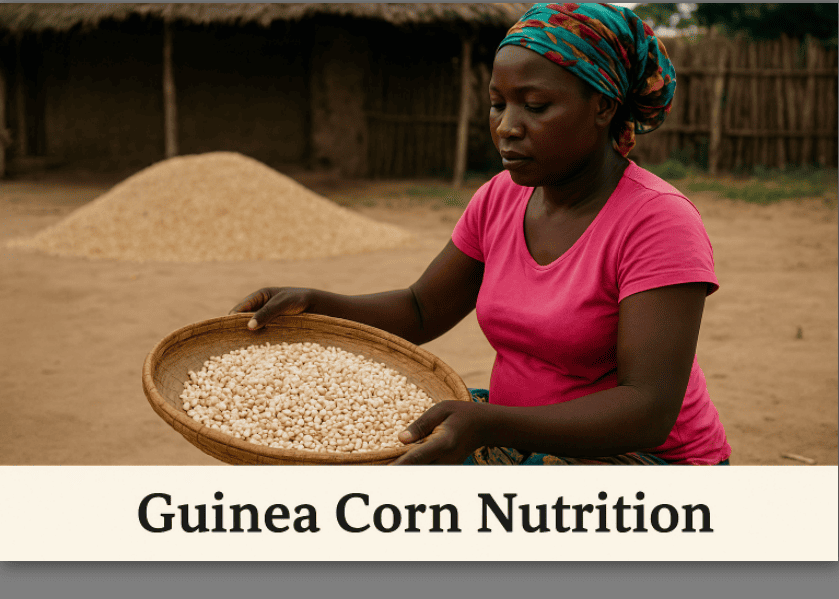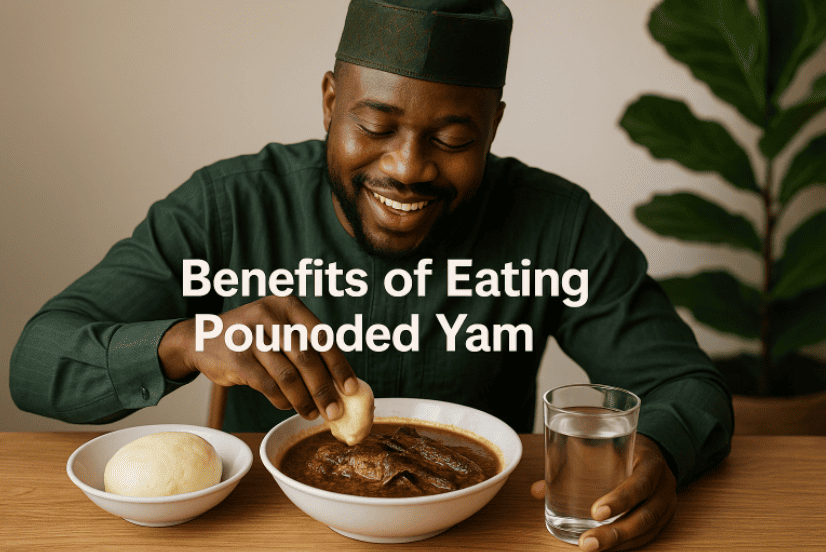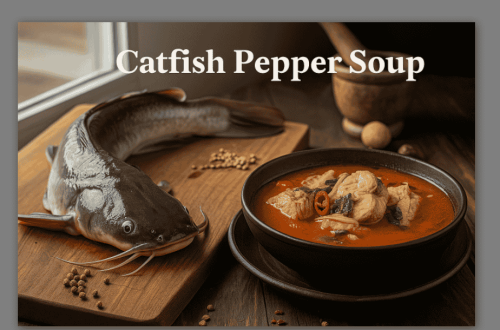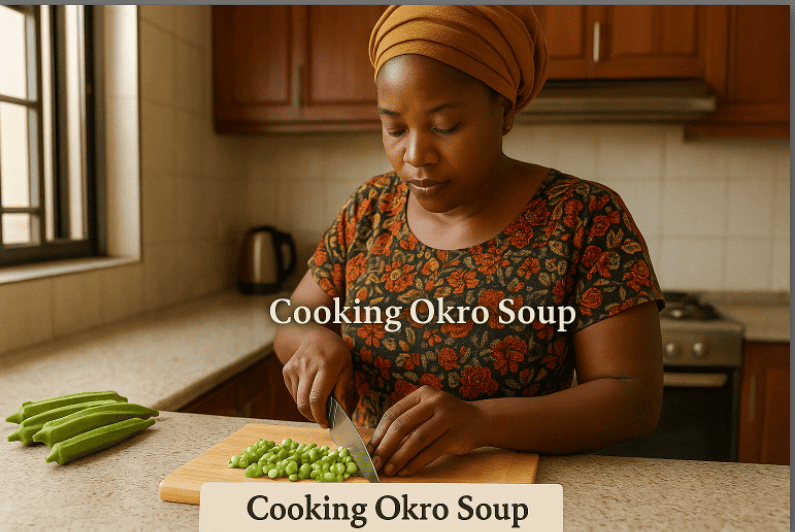Imagine it is a chilly Harmattan morning. The dry wind cracks your lips, and the whole house smells of firewood smoke. In the kitchen, Mama is stirring a pot of guinea corn porridge. As you and your siblings sit on the mat, impatiently waiting for that steaming bowl, you may not realize you’re about to enjoy one of the many guinea corn health benefits that Nigerians have relied on for generations.
She serves it with milk and a sprinkle of sugar, and as you take the first spoon, you feel warmth spread from your tongue down to your toes. That, my friend, is guinea corn—our humble, hearty, and forever dependable grain.
For many Nigerians, guinea corn (also called sorghum or dawa in Hausa) is more than food. It is culture, survival, and memory. From the North, where guinea corn farming sustains millions, to the South, where pap and snacks made from guinea corn flour fill our childhood, this grain is woven into the Nigerian experience.
But beyond the nostalgia lies a powerful truth: guinea corn is a nutritional powerhouse. It is loaded with health benefits, affordable compared to imported grains, and versatile enough to show up in everything from swallows to snacks. In this article, I’ll walk you through the nutrition facts of guinea corn, the guinea corn benefits you should know, the recipes, snacks, and even the economy around it—sprinkled with relatable Nigerian examples and tips.
By the end, you’ll understand why guinea corn deserves a front-row seat in your diet. After reading this article, find time to also read and discover that Bitter kola isn’t just tradition—it’s medicine in your pocket. From fighting infections to boosting immunity and energy, here are 13 surprising health benefits of bitter kola every Nigerian should know.
The Rich Nutritional Profile of Guinea Corn
When you take a bowl of guinea corn porridge, you may think you’re simply eating to satisfy hunger. But in reality, you are fueling your body with nutrients strong enough to carry you through the toughest Lagos traffic or a full day of farm work under the hot northern sun.
Macronutrients in Guinea Corn
• Carbohydrates: Guinea corn is rich in complex carbs that release energy slowly. Unlike garri that “runs away” after two hours, guinea corn sustains you through the day. That’s why many farmers eat tuwon dawa before heading to the farm—it keeps them strong until evening.
• Protein: While not as high as beans, guinea corn provides a decent amount of protein that supports muscle repair and growth, especially important for children.
• Fats: Low in fat, making it heart-friendly and waistline-friendly.
Micronutrients and Antioxidants
• Iron: Essential for blood health, preventing anemia—especially for Nigerian women and children.
• Magnesium and Potassium: Help regulate blood pressure, which is crucial since hypertension is common in Nigeria.
• B vitamins: Vital for energy metabolism, so you don’t always feel sluggish.
• Antioxidants: Protect the body against free radicals, reducing the risk of chronic diseases.
Put simply, guinea corn is not just filling; it is healing. And unlike heavily processed imported foods, it comes with no “oyinbo preservatives” that confuse our bodies.
Why Guinea Corn Benefits Every Nigerian Family
Every Nigerian family, from the smallest child to the oldest elder, can benefit from guinea corn.
1. Energy That Lasts
Children who eat guinea corn pap before school stay sharp longer than those who only snack on bread and tea. The slow energy release means no mid-morning hunger crashes.
Think about it—many of us grew up with that routine: rushing out of the house with a cup of hot pap and akara wrapped in old newspapers. By the time you get to class, you’re not only awake but also focused, ready to tackle mental maths without your stomach distracting you.
Guinea corn works differently from sugary foods that give quick energy and then leave you feeling weak after an hour. Instead, it “releases power gently,” like that friend who never shouts but always delivers when it matters. For children, this means they can pay attention in class until break time. For adults, a breakfast of guinea corn porridge keeps you steady through Lagos traffic, long meetings, or even a full day on the farm.
This lasting energy is one of the reasons guinea corn is a staple in Northern Nigeria. Farmers often eat tuwon dawa in the morning before heading to the fields, because they know it will keep their strength until evening. It’s slow, steady fuel for the body—a kind of natural “battery pack” that doesn’t run down too quickly.
2. Weight Management
For those trying to “cut belly” without starving, guinea corn is a true ally. The high fiber makes you feel full longer, reducing the urge to grab meat pies at every bus stop.
We all know that struggle—Lagos traffic will test your discipline. One minute you’re swearing you’ll eat clean, the next minute Gala and LaCasera are calling your name from the window. But with guinea corn, you stand a better chance. The fiber swells in your stomach, keeping hunger at bay. Instead of chasing puff-puff at 10 a.m., you’ll feel satisfied until lunch.
That’s why many fitness-conscious Nigerians are rediscovering guinea corn flour for smoothies and swallow. It’s lighter than eba, but still filling. And unlike crash diets that leave you cranky and tired, guinea corn helps you lose weight gradually without feeling like you’re punishing yourself. It’s not just about cutting belly—it’s about living healthier, longer.
3. Diabetes and Blood Sugar Control
Unlike white rice or sugary snacks, guinea corn has a low glycemic index, making it a safe choice for diabetics. Ask around, many doctors in Nigeria recommend it as a staple.
The truth is, diabetes is now a silent household conversation in many Nigerian families. Auntie can no longer drink Fanta like before, Uncle must avoid white bread, and suddenly everyone is looking for better food options. This is where guinea corn shines.
Instead of spiking blood sugar quickly like soft drinks or pastries, guinea corn digests slowly and releases glucose gradually. That means steady energy without dangerous highs and lows. It’s like the difference between rushing into third mainland traffic at 8 a.m. versus leaving early at 6—smooth and less stressful.
Doctors often recommend guinea corn pap, swallow, or even snacks made from it to patients managing diabetes. It’s affordable, locally available, and blends easily into everyday Nigerian meals. Choosing guinea corn doesn’t just help control blood sugar—it can literally add years of healthier living.
4. Children and Pregnant Women
Pap from guinea corn is often the first solid food many Nigerian babies eat. It’s gentle on the stomach, yet nourishing. For pregnant women, the iron helps prevent anemia and boosts strength.
Think about it: many of us grew up being woken up early with the sweet aroma of pap and akara. Mama would carefully stir that steaming guinea corn pap, sometimes with milk or honey, to make sure it wasn’t too thick for little mouths. That bowl of pap wasn’t just breakfast—it was love served hot.
For children, guinea corn pap builds strong bones, sharp brains, and healthy growth without upsetting their tiny tummies. For expectant mothers, the story is even sweeter. Guinea corn’s natural iron supports blood levels, reduces tiredness, and helps the baby’s development. Instead of depending only on expensive supplements, this local grain provides strength straight from the pot.
In many Nigerian homes, one derica of guinea corn can feed both mother and child—making it a trusted companion from pregnancy to childhood.
5. Affordable Nutrition
A derica of guinea corn costs far less than imported oats or rice, yet provides equal or more nutrition. In a country where food inflation is on everyone’s lips, guinea corn is our local solution.
Let’s be honest—food prices in Nigeria can humble anybody. One day you’re pricing rice, and the next you’re wondering if spaghetti is now a luxury item. But guinea corn remains a hero for the average family. With just a small measure, you can make pap for the children, tuwo for dinner, or even grind it into flour for snacks.
Unlike imported cereals that finish in two sittings, guinea corn stretches. It’s pocket-friendly, filling, and versatile. Farmers in the North have been cultivating it for centuries, yet it’s still affordable enough to reach homes across the country.
So, instead of worrying about whether you can afford “oyinbo oats,” remember that guinea corn is sitting in the market—nutritious, reliable, and proudly Nigerian.
6. Good for the Heart
Guinea corn isn’t just another grain to fill your stomach; it’s a true friend to your heart. One of its superpowers is helping the body reduce “bad” cholesterol levels while boosting circulation. That means your blood flows more freely, your arteries stay healthier, and your heart does not have to overwork itself.
In Nigeria today, many families are quietly battling high blood pressure, hypertension, and even stroke. Sometimes, you hear stories of strong men suddenly collapsing after football on a Sunday evening, or mothers rushing to the hospital with chest pain. Doctors often trace it back to poor diet and clogged arteries from too much fried and processed food.
This is where guinea corn shines. A simple bowl of guinea corn pap in the morning, guinea corn swallow with vegetable soup in the afternoon, or even guinea corn drink (kunu) in the evening, can become a natural shield for your heart. It’s like a silent insurance policy—affordable, available in every local market, and powerful enough to keep your cardiovascular system in check.
Instead of waiting for hospital bills to teach you a lesson, let guinea corn quietly strengthen your heart one meal at a time. Groundnut oil is a staple in Nigerian kitchens, but its health benefits go far beyond cooking. From heart health to glowing skin, discover 13 powerful benefits of groundnut oil and why you should add it to your diet today.
7. Strengthens the Immune System
Guinea corn is more than just energy food; it’s also a natural bodyguard. Packed with antioxidants, vitamins, and minerals, it helps your immune system stand strong against everyday illnesses. Think of it as a shield, quietly protecting you from the kind of small but stubborn health issues that can easily slow you down.
In Nigeria, we all know how the Harmattan season comes with its drama—dust everywhere, cracked lips, endless sneezing, and children catching colds almost every week. While many people rush to buy vitamin C tablets or cough syrups, a simple plate of guinea corn pap can do wonders from the inside out. Its nutrients help the body produce more white blood cells, the tiny soldiers that fight off infections.
Whether it is children who always seem to catch a runny nose at school, or adults who feel drained after long Lagos traffic runs, guinea corn offers natural support. Instead of just reacting to sickness, why not feed your body what it needs to prevent it? With guinea corn as a regular part of your diet, you’re not just eating—you’re fortifying your body’s defense system.
8. Supports Healthy Bones
Strong bones are the silent foundation of a healthy life. Guinea corn, rich in calcium, magnesium, and phosphorus, gives your bones and teeth the daily strength they need. This is especially important in a country where many people don’t get enough dairy products due to cost or lactose intolerance. Guinea corn becomes a pocket-friendly, everyday way to keep bones strong.
For children, it supports growth, ensuring their bones develop properly. For adults, especially women, it helps reduce the risk of osteoporosis later in life. And for our elders, it plays a quiet but powerful role in easing joint pains and maintaining mobility. Imagine an elderly grandmother who still bends to attend to her garden without wincing—foods like guinea corn make that possible.
Even our teeth benefit. Regular consumption provides the minerals that keep them firm and resistant against decay. So, whether it’s a child still losing milk teeth, or an adult enjoying roasted corn by the roadside, strong teeth matter at every age.
Guinea corn is not just filling your belly; it’s quietly building a skeleton that will carry you strongly through life.
9. Versatile in the Kitchen
One of the sweetest things about guinea corn is how it refuses to be boring. This humble grain can wear many “outfits” in the kitchen. From the soft, warm pap (ogi/akamu) that babies and adults enjoy in the morning, to the smooth tuwo that pairs beautifully with draw soup, guinea corn is a chameleon on the dining table.
Mothers especially love it because they can get creative without breaking the bank. With guinea corn flour, you can make pancakes that taste just as good as the ones made with wheat, only healthier. Bakers mix it into biscuits and snacks, while kunu—our traditional guinea corn drink—remains a favorite at weddings and family gatherings.
The best part? Because it can be prepared in so many forms, your family won’t get tired of it. Instead of the usual “rice every day” routine, guinea corn adds variety, color, and excitement to mealtimes. In fact, it’s one grain that bridges tradition and modern cooking, giving you freedom to enjoy it in both local and creative recipes. Truly, guinea corn is the kind of food that never overstays its welcome in your kitchen.
10. Sustainable and Local
Guinea corn isn’t just good for your body—it’s also good for the nation. Unlike imported grains that depend on dollar exchange rates and shipping costs, guinea corn is proudly Nigerian. It grows well in our soil, thrives in our climate, and supports thousands of local farmers across the North and Middle Belt. Every time you buy guinea corn from the market, you’re not just buying food; you’re investing in our economy.
In these times when food prices rise at the slightest fluctuation in foreign exchange, guinea corn stands tall as a dependable, homegrown solution. Families don’t have to worry about scarcity or heavy import costs—it is always available, and at a price far friendlier than imported cereals.
Beyond economics, it also contributes to food security. The more we value and consume local produce like guinea corn, the less dependent we are on foreign supply chains. And that means greater stability for our kitchens and our pockets.
So, eating guinea corn is more than a meal—it’s a patriotic act. You’re nourishing yourself while supporting Nigerian farmers, strengthening our economy, and building a culture of sustainability.
11. Gentle on the Stomach
Not every food sits well in the stomach. Some meals, especially pepper-laden or oily ones, can feel like a battle once they land inside. But guinea corn is different—it’s naturally gentle, making it perfect for people with ulcers, acidity, or sensitive stomachs. When prepared as pap, it slides down smoothly, calming the belly instead of irritating it.
In many Nigerian homes, guinea corn pap is the go-to meal for someone recovering from sickness. Doctors often recommend it because it’s light, easy to digest, and still nourishing. Mothers also give it to toddlers who are just learning to eat solids, since their delicate stomachs can’t handle heavy foods yet.
For ulcer patients who sometimes dread mealtime because of pain, guinea corn is a relief. It provides energy without aggravating the stomach lining. Even elders who find swallowing stiff meals difficult enjoy guinea corn porridge or pap as a soft, soothing alternative.
So, whether you’re fighting ulcers, recovering from illness, or just looking for a meal that won’t stress your digestive system, guinea corn proves that food can be both healing and satisfying.
12. Perfect for All Ages
Guinea corn is truly an all-rounder, fitting seamlessly into every stage of life. For babies, it becomes pap that strengthens their tiny bodies. For school children, a warm bowl of guinea corn porridge before class provides steady energy without the sugar crash that comes from processed snacks.
Adults also lean on it. A young professional may pack tuwo made from guinea corn in a food flask for office lunch—healthy, filling, and cheaper than fast food. Mothers in bustling markets often sip kunu to cool down after hours under the sun. And for elders, guinea corn remains a faithful companion. Its softness makes it easy to chew, while its nutrients help them maintain strength and vitality.
It’s rare to find a food that adapts to everyone, but guinea corn does just that. It nourishes without discrimination—whether you are crawling, hustling, or relaxing in retirement. It’s like that trusted family member always present at every stage of life, never going out of season.
From grandma’s evening pap to a child’s breakfast porridge, guinea corn truly belongs on every table, in every generation.
Popular Guinea Corn Recipes in Nigerian Homes
Food is love, and guinea corn has found its way into countless Nigerian kitchens. From traditional breakfasts to creative snacks, this humble grain shows up in ways that make both the young and old smile. Let’s talk about some household favorites.
1. Guinea Corn Porridge
This is comfort food at its finest. Simple to make, gentle on the stomach, yet surprisingly filling. The grains or flour are boiled with water, stirred until smooth, and often sweetened with sugar, honey, or milk. Some families even enrich it with groundnuts or soya milk for extra protein. It’s a go-to meal for toddlers, nursing mothers, or anyone recovering from illness. Warm, creamy, and nourishing, guinea corn porridge is that hug-in-a-bowl you need after a long day.
2. Pap (Akamu or Ogi)
Ah, pap! Who doesn’t remember waking up to the smell of hot pap with akara or moi on a Saturday morning? Made by fermenting guinea corn flour, pap carries a creamy texture and tangy flavor that feels both nostalgic and refreshing. In many Nigerian homes, it’s a first food for babies and a comfort food for adults. Pair it with puff-puff, beans cake, or even fried yam, and you’ll understand why pap is not just food but a national breakfast champion.
3. Tuwo Dawa
This is the pride of Northern Nigeria. Tuwo Dawa is a swallow made from guinea corn flour, rolled into smooth balls, and served alongside soups like miyan kuka, groundnut soup, or vegetable soup. Beyond filling the stomach, it’s cultural heritage on a plate. Weddings, naming ceremonies, and festivals in the North are never complete without it. If you’ve never sat down to enjoy tuwo with a steaming pot of soup, you’re missing one of Nigeria’s most treasured food experiences.
4. Guinea Corn Snacks
Guinea corn is not limited to pap or swallow—it’s a star in street food and snacks too.
Masa (Waina): These soft, fluffy pancakes made from guinea corn are a delicacy in the North. They are usually paired with honey, stew, or suya for a filling treat.
Roasted Guinea Corn with Groundnuts: A street snack classic! Sold at bus parks, markets, and village squares, it’s crunchy, portable, and the perfect on-the-go energy booster.
Pap Biscuits: A modern twist where guinea corn flour is baked into cookies, giving a healthy alternative for kids and adults who want to snack without guilt.
Whether as a snack on the roadside or a full family meal, guinea corn always finds a way to shine.
These guinea corn recipes prove the grain’s versatility. From Sokoto to Enugu, Lagos to Jos, there’s a guinea corn dish waiting for you—reminding us that good food is not just about taste, but about culture, memory, and connection.
The Economic Power of Guinea Corn Farming
In Nigeria, guinea corn is more than just food—it’s an entire economy in motion. Behind every grain that lands in your pot is a chain of hands, sweat, and survival stories that keep thousands of families afloat.
• Farming Communities
In states like Kano, Kaduna, Benue, and Plateau, guinea corn is life. Families dedicate large portions of land to planting it, knowing that when harvest comes, it will pay school fees, put food on the table, and even fund weddings or new businesses. For many rural households, guinea corn isn’t just a crop—it’s currency.
• Job Creation
The ripple effect of guinea corn farming is massive. Farmers till and harvest, traders buy in bulk, millers grind it into flour, and truck drivers transport sacks from the North down to Mile 12 in Lagos or Ogbete market in Enugu. Along the way, loaders, hawkers, and food vendors all get their share. One harvest creates thousands of mini jobs across the value chain.
• Food Security
Unlike rice, which often needs heavy irrigation, guinea corn thrives even in dry conditions. That makes it a reliable safeguard against drought and climate change. In tough seasons when other crops fail, guinea corn stands tall as Nigeria’s food insurance.
So, the next time you buy guinea corn in the market, remember—you’re not just buying food. You’re fueling an economy, sustaining livelihoods, and strengthening Nigeria’s food security.
Everyday Uses of Guinea Corn Flour
Guinea corn flour is gradually moving from being “just another local ingredient” to becoming a superstar in Nigerian kitchens. In the past, many people only thought of it for pap or tuwo, but today, families are discovering new, creative ways to use it.
Mothers now whip up guinea corn pancakes for school lunch boxes—soft, fluffy, and healthier than the sugar-packed snacks from supermarkets. Health-conscious bakers are experimenting with guinea corn bread, giving us loaves that are rich, filling, and perfect with a cup of tea. Even weekend treats like chin chin and biscuits are now being made with guinea corn flour, giving children a crunchy snack that is both delicious and nutritious.
The beauty of guinea corn flour is its versatility. It blends well with other flours, making it a healthier alternative to the over-processed wheat flour we’re so used to. That’s why many families now keep it side by side with wheat in their kitchens. It’s not just tradition anymore—it’s modern, healthy living with a touch of Nigerian pride.
Guinea Corn Snacks Nigerians Can’t Resist
If you’ve ever been stuck in Lagos traffic and an aboki passes by selling roasted guinea corn with groundnuts, you already know it’s irresistible. That nutty crunch can carry you from Ojota to CMS without a single complaint. It’s one of those roadside blessings that prove Nigerian street food is unmatched.
But roasted corn isn’t the only way guinea corn shines in the snack world. Northern Nigeria proudly serves up Masa (Waina)—soft, fluffy pancakes that pair perfectly with honey, stew, or suya. In recent years, bakers have gotten even more creative, turning guinea corn flour into biscuits and cookies, giving health-conscious families a guilt-free snack option. And yes, believe it or not, some inventive folks are even making guinea corn popcorn—a playful twist that younger Nigerians absolutely love.
These snacks do more than fill the belly; they keep guinea corn relevant for the next generation. From the roadside seller with a tray on his head to the modern bakery in Abuja, guinea corn continues to prove it’s not just food—it is culture, comfort, and creativity rolled into one.
Are you aware Garden egg is more than a side dish—it’s a nutritional gem. Discover 14 amazing health benefits of garden egg for Nigerians, from controlling weight and blood sugar to improving digestion and heart health.
In Conclusion: Guinea corn is more than a grain—it is a story of resilience, culture, and nourishment. From the farms of the North to the kitchens of the South, it continues to feed, heal, and unite Nigerians. It is affordable, versatile, and full of benefits we cannot afford to ignore.
So next time you drink pap, chew roasted guinea corn, or swallow tuwon dawa, remember: you’re not just eating food. You’re connecting with a rich heritage and nourishing your body in the best way possible.
FAQ Section
1. What is guinea corn in Nigeria?
Guinea corn, also called sorghum, is a staple grain, known as dawa in Hausa.
2. What are guinea corn benefits?
Energy, weight management, blood sugar control, heart health, and affordability.
3. Is guinea corn porridge healthy?
Yes. It is light, filling, and nutritious, perfect for children and adults.
4. Can guinea corn flour replace wheat?
Yes. It is gluten-free and healthier for pancakes, bread, and swallows.
5. What are guinea corn snacks?
Roasted guinea corn, masa, pap biscuits, and even guinea corn popcorn.
6. Is guinea corn good for diabetics?
Yes, because it has a low glycemic index.
7. How is guinea corn farming done?
Mostly in Northern Nigeria, planted during rainy season, harvested after 3–4 months.
8. What is tuwon dawa?
A swallow made from guinea corn flour, eaten with soups like miyan kuka.
9. Can babies eat guinea corn?
Yes. Many Nigerian mothers start with guinea corn pap for weaning.
10. How is guinea corn porridge made?
By cooking guinea corn grains or flour with water until thick, then adding milk or sweetener.
11. Why is guinea corn affordable in Nigeria?
It grows well locally, unlike imported grains.
12. Is guinea corn flour good for baking?
Yes. It works for bread, pancakes, and even biscuits.
13. Why should Nigerians eat more guinea corn?
Because it is healthy, culturally rooted, and cheaper than many alternatives.
Done reading this master-piece, do you know that Alligator pepper is not just spice—it’s a natural healer. From aiding digestion to boosting immunity and energy, explore the powerful health benefits of alligator pepper every Nigerian should know today.





